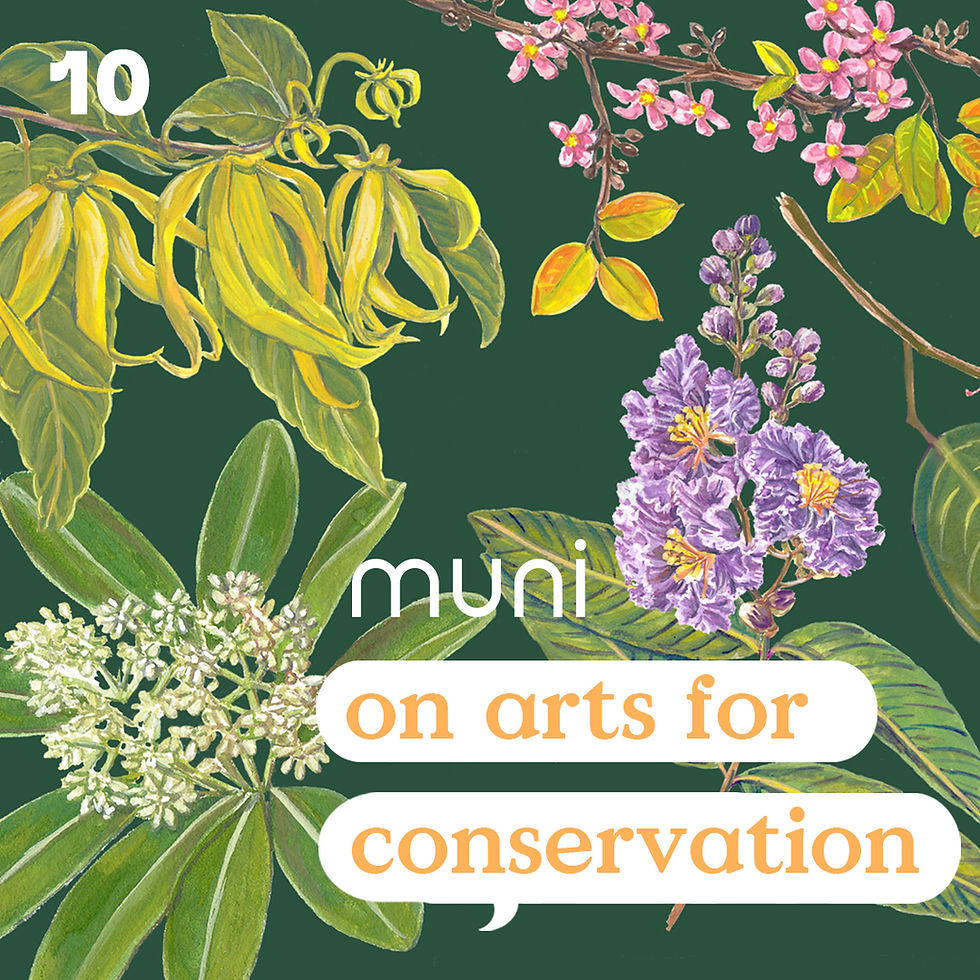Caleb's Closet: Environmentally Mindful Parenting
- Team Muni

- Dec 6, 2012
- 2 min read
Muni on this:
Did you know that one disposable diaper can live four times as long as your child (and this assume he/she lives until 70 or 80 years old)?
This is one one of the foremost thoughts on Dr. Lei Camiling-Alfonso’s mind when she decided to make the switch from disposable diapers to cloth diapers, and regular home care products to more environment- and baby-friendly ones. Her own lifestyle change encouraged her to share her “explanation-intensive” finds with friends, which she wound up turning into a business with Caleb’s Closet Ecostore. Though the story behind cloth diapers or green housekeeping may be longer than the 30-second detergent commercials we see on TV, you just might find yourself investing more time to learn more once you’re introduced to the benefits of such a lifestyle.
Muni: What inspired you to create Caleb’s Closet?
Lei: It’s actually just a little home store that slowly took shape during my spare time as a housewife. Most of the commodities I brought together were hard to come by, or were explanation-intensive. I loved convincing people of things I am totally convinced about. So the store came to be.
Motherhood made me aware of things unheard of. Like the modern cloth diapers. I had to look for options because my baby was sensitive to disposables. Later on, I realized the environmental and economic impact. Because they were relatively new, apparently pricey and seemingly inconvenient, not a lot of moms were willing to give the modern lampins a try, so along with other like-minded mompreneurs, we’ve started to advocate for cloth diapers through our stores.
Muni: What keeps you motivated to work on your brand/company?
Lei: It’s the moms that keep on coming back, bringing along their sisters or friends 🙂 It’s about letting others know that “hey, there’s something better over here!”. You can’t keep good things to yourself, right? It’s all about sharing.
Muni: How do you select the items you carry?
Lei: People ask me why we don’t sell this item or that. Truth is, not a lot of items will make it to our store’s shelves for various reasons, and I hope to keep it that way for now. I think the store is where it is now because we have tried to keep it as close as possible to what we claim for it to be. And we have carved our niche by simply sticking with our values.
Muni: What do you wish people were more conscious/aware about?
Lei: First is the ecological impact of diaper changes. A baby may need 3,000 diaper changes for the first 2 years of life. That’s around P30,000 worth of garbage. And this is a conservative estimate. Based on roughly 4-6 absorbent disposable diapers/day x 365 x 2 with each diaper costing P10. Disposable diapers may take 250-500 years to decompose. So just one poop-laiden diaper will definitely outlive your child! Second is that breastfeeding is green. For every baby fed with formula, some 150 tin cans are disposed. Add the bottles and the artificial nipples that are essential to feeding – they will eventually go to waste. Not to mention the tremendous energy it takes to actually take care of the cows, process the milk, and transport the end products to the consumers. In contrast direct breastfeeding is practically zero waste!
Here at Muni, we’re really all about the little lifestyle changes that ultimately make a huge difference. And if we’ve managed to make you rethink about the waste you produce and be more conscious about it, then we’ve fulfilled a big part of our mission too.
Read up on our other Pop-Up Shop co-presenters!
Caleb’s Closet Website: www.multiply.com/calebscloset Facebook: www.facebook.com/calebscloset








Comments